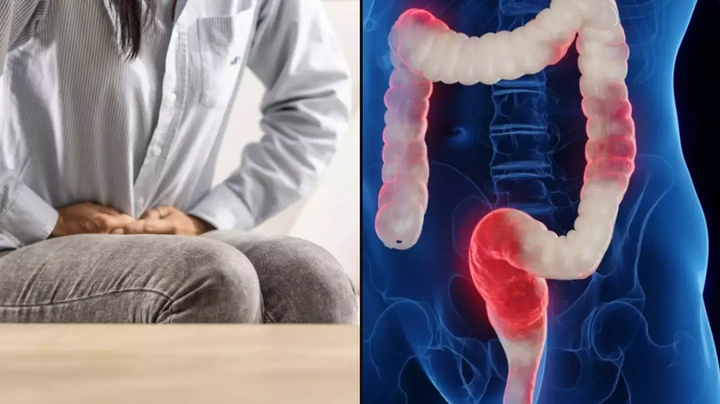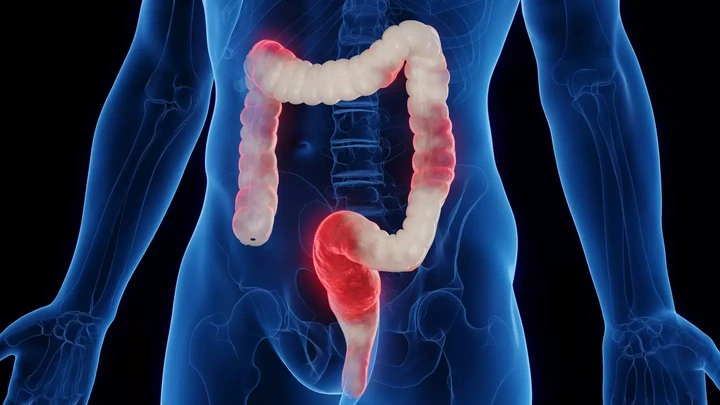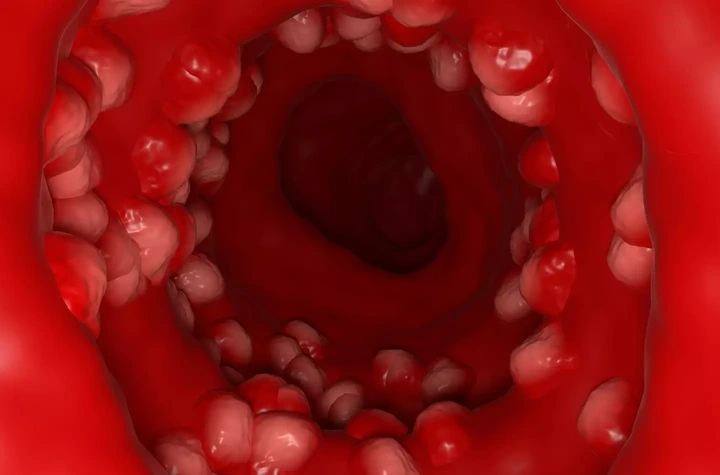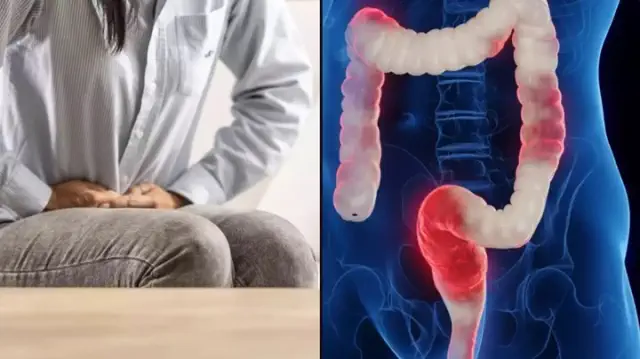Scientists from the Francis Crick Institute and University College London believe they have found the solutions.

View pictures in App save up to 80% data.
Caution: this article includes images that may be unsettling for some viewers.
Researchers in the UK have achieved a significant breakthrough in their study of inflammatory bowel disease, a development that has the potential to transform the lives of countless individuals.
Because of this finding, it is no longer 'not clear' what causes the condition, according to scientists and we could very well be on the way to finding a suitable treatment plan that helps so many people get rid of their painful symptoms.
This breakthrough has the potential to transform the lives of individuals battling IBD, as it suggests that effective treatments may have been available all along, unbeknownst to anyone.
The answer to the IBD question was revealed after the researchers at the Francis Crick Institute and University College London found that there is a weak spot in the DNA of people who suffer from IBD, while they were trying to figure out where the condition originates from.

View pictures in App save up to 80% data.
It was disclosed that a DNA anomaly was found in 95 percent of individuals suffering from the disease, and researchers believe they have finally uncovered the underlying cause of the condition.
This horrid condition causes people to feel uncomfortable, bloated, pain in their abdomen and it can also make them vomit too if they eat certain foods.
Therefore, discovering an effective treatment could relieve countless individuals from enduring debilitating symptoms.
Dr. James Lee, who leads the genetic mechanisms of disease lab at the Francis Crick Institute, shared that his team unexpectedly made a significant discovery while investigating what is known as a 'gene desert'.
This is scientific jargon for a stretch of DNA on chromosome 21, which does not code for proteins and has previously been linked to health problems, such as IBD and other autoimmune diseases.
The research, which was detailed in Nature, said that scientists realised a particular section of DNA - dubbed an 'enhancer' - acts similarly to a volume control for nearby genes.
However, this booster was observed exclusively in immune cells, specifically white blood cells referred to as macrophages. In these cells, it enhanced the expression of a gene known as ETS2, which concurrently increased the likelihood of developing inflammatory bowel disease (IBD).
Macrophages accumulate in the intestinal linings and secrete substances known as cytokines, leading to significant inflammation. As we are all aware, excessive inflammation over extended periods can be quite uncomfortable, to put it mildly.
After conducting an extensive genetic analysis, researchers discovered that the 'enhancer' region of DNA acts as the 'master regulator' of inflammation in macrophages, a finding that Dr. Lee described as being 'at the pinnacle of the hierarchy'.

View pictures in App save up to 80% data.
Dr. Lee stated, "This is certainly one of the key pathways that malfunction in individuals who develop inflammatory bowel disease. It involves the malfunctioning of one of the crucial cell types responsible for triggering this condition."
Dubbing it a 'holy grail' discovery, he explained that drugs which are already approved for other illnesses such as cancer were able to calm this excessive inflammation - but they need to be tweaked to perfection to target the macrophages.
Dr. Lee expressed his optimism that clinical trials will commence within the next five years.
They are now keen to set up human trials after realising drugs which already exist seem to reverse the disease in laboratory experiments - so it's looking up for those with IBD.
If you didn't know, around half a million people in the UK are suffering from some form of inflammatory bowel disease, but Crohn's disease and ulcerative colitis are both the most common.
Individuals affected often report symptoms including diarrhea, abdominal pain or cramping, blood in their stool, rectal bleeding, fatigue, and unintentional significant weight loss.
There is clearly a significant overlap between the symptoms of inflammatory bowel disease (IBD) and other related disorders like irritable bowel syndrome (IBS). However, a key distinction lies in the fact that IBD leads to inflammation within the intestines.
According to the NHS website at the time of writing, it is 'not clear' what causes the disease, but it 'happens when your immune system attacks your bowel, which causes it to get inflamed'.
It's time to refresh the website, as the situation has become quite evident now.










